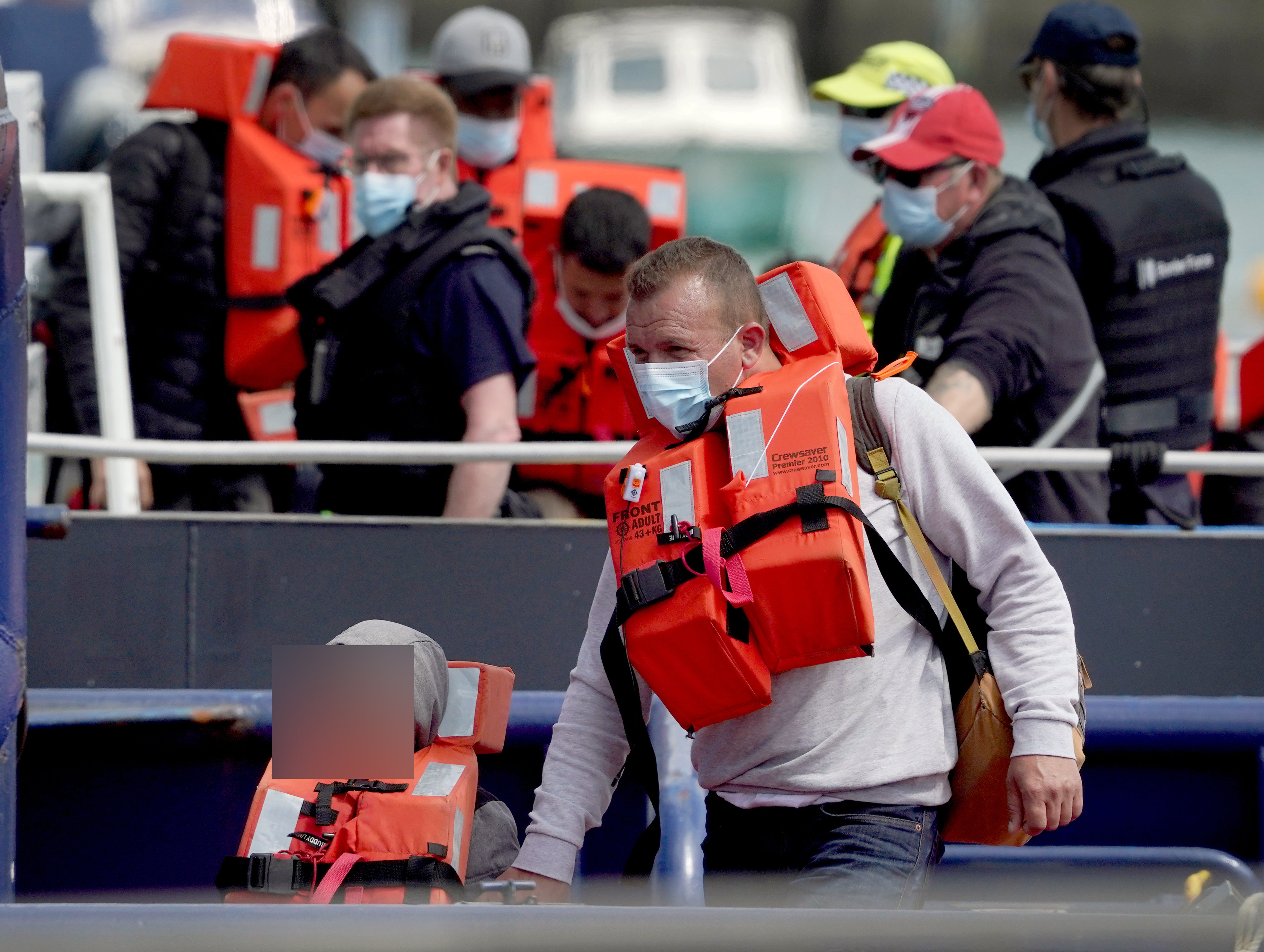Channel crossings continue as traffickers face life sentence under new law
A total of 153 migrants on four boats were intercepted by the UK authorities on Monday.

More people have risked choppy seas in the English Channel to reach the UK as a new law comes into force, meaning small boat pilots could face life sentences.
A total of 153 migrants on four boats were intercepted by the UK authorities on Monday June 27, according to figures released by the Ministry of Defence.
More migrants are expected to arrive on Tuesday despite strong winds in the region.
The recent crossings bring the total of people reaching the UK so far this year to 12,312 compared to 5,654 by this point in 2021 and 2,449 in 2020.
Under the Nationality and Borders Act (NABA) which comes into force on Tuesday June 28, anyone caught piloting a boat carrying migrants in the Channel could face life behind bars.
The measures, which received Royal Assent in April, include tougher penalties for those who pilot a small boat or smuggle migrants into the UK by other dangerous or illegal means, with a maximum sentence of life imprisonment.
Also the maximum penalty for illegally entering the UK or overstaying a visa has increased from six months to four years’ imprisonment.
Those who did not come to the UK directly, did not claim without delay, or did not show good cause for their illegal entry or presence, may be given a shorter grant of permission to stay with a minimum of 30 months instead of five years.
Immigration officers have also been given new powers to search containers for illegal migrants and foreign national offenders held in UK prisons can now be removed 12 months before the end of their custodial sentence.
Also, the Government has powers to limit visas for those from countries which pose a “risk to international peace and security and those that refuse to take back their own citizens who have no right to be in the UK.
Home Secretary Priti Patel said: “This is one of the most crucial milestones in delivering on our promise to the British public to take back control of our borders.
“While there is no single solution to the global migration crisis, these reforms which come into effect today play a vital role in overhauling the broken asylum system as we put our New Plan for Immigration into action.
“We will continue to work tirelessly to ensure that we offer protection and sanctuary to those in genuine need; but these new measures will enable us to crack down on abuse of the system and the evil people-smugglers, who will now be subject to a maximum sentence of life imprisonment as a result of this law coming into force.”
The NABA also includes changes to laws that previously denied British nationality to some children of British Overseas Territory citizens.
Previously, women with British Overseas Territory citizenship could not pass on British nationality to children born outside the UK and its territories before January 1 1983.
Similarly, children born to unmarried British Overseas Territory fathers before July 1 2006 could not acquire British nationality through their father.
Rules requiring children born outside an Overseas Territory to British Overseas Territory citizen parents to be registered within 12 months of their birth in order to qualify for citizenship are being scrapped.
Bookmark popover
Removed from bookmarks